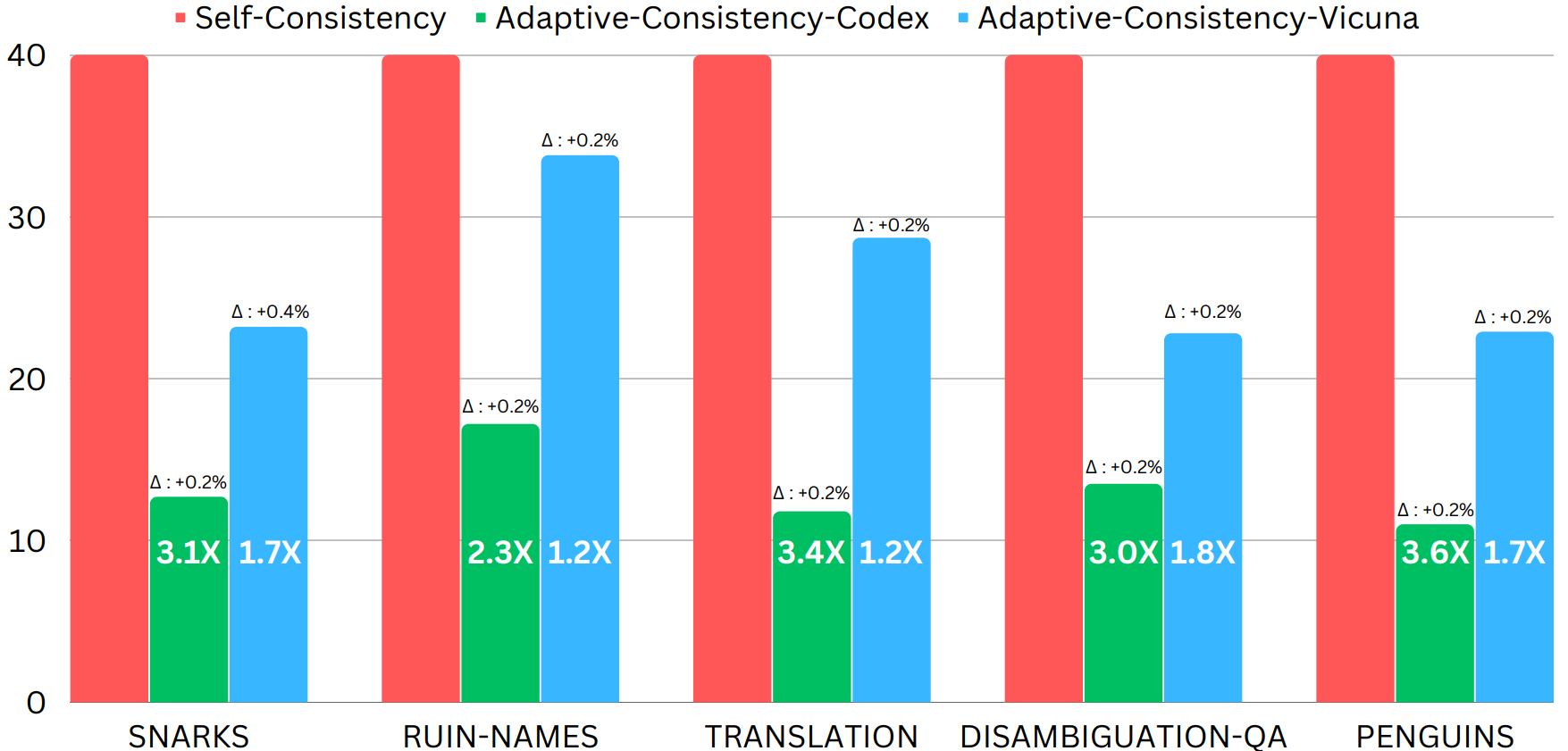A popular approach for improving the correctness of output from large language models (LLMs) is Self-Consistency -- poll the LLM multiple times and output the most frequent solution. Existing Self-Consistency techniques always draw a constant number of samples per question, where a better approach will be to non-uniformly distribute the available budget, based on the amount of agreement in the samples drawn so far.
In response, we introduce Adaptive-Consistency, a cost-efficient, model-agnostic technique that dynamically adjusts the number of samples per question using a lightweight stopping criterion. Our experiments over 13 datasets and two LLMs demonstrate that Adaptive-Consistency reduces sample budget by up to 7.9 times with an average accuracy drop of less than 0.1%.
 Mathematical Reasoning
Mathematical Reasoning
 Logical Reasoning
Logical Reasoning
